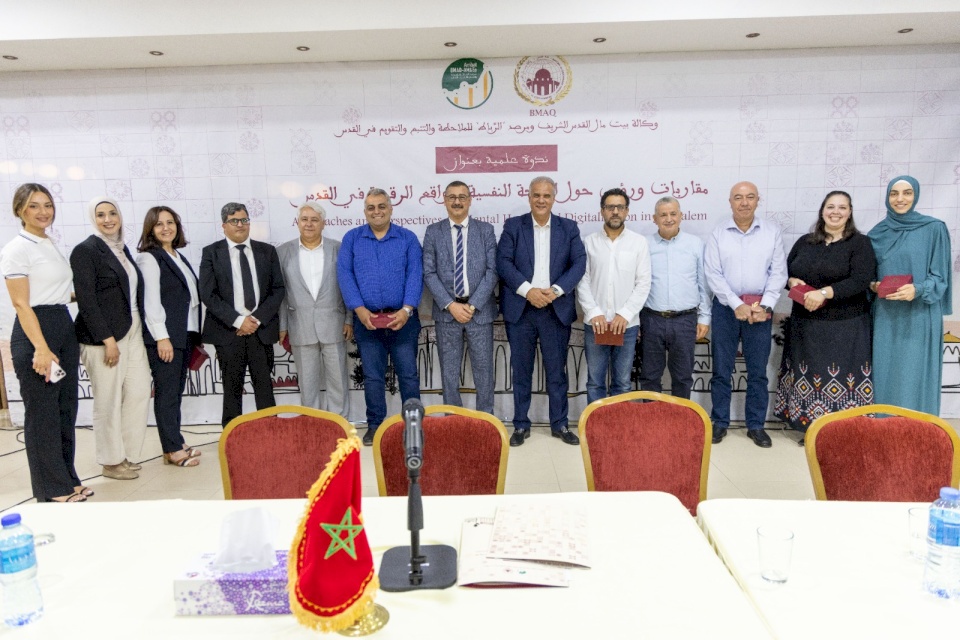
Beit Mal Al-Quds Agency Presents Results of Two Qualitative Studies on the Digitalization of Mental Health Services and Support for Entrepreneurial Projects in Jerusalem
SadaNews - The Beit Mal Al-Quds Agency, in Ramallah, presented the results of two qualitative studies that addressed the reality of mental health and digital transformation in the city of Jerusalem, with the participation of Palestinian experts and specialized researchers.
The workshop, attended by the acting director of the agency, Mohamed Salem Al-Sharkawi, focused on the research methodology and the nature of the representative samples surveyed, before presenting the results of the two studies, which projected the future of mental and digital services in the city and highlighted the entrepreneurial environment in light of the city's conditions and the migration of competencies.
Al-Sharkawi emphasized that the two studies form an important foundation for further research and studies that help the agency understand the challenges of the social and economic reality in Jerusalem and assist in engineering its programs and projects to achieve tangible results.
Al-Sharkawi stated that addressing the needs of groups suffering from psychological disorders should move to a prominent position in the priority scale of the institution's work in this field, at the time when the agency has adopted its digital strategy for the period between 2024-2027, for programs supporting innovation, entrepreneurship, and economic empowerment through sustainable local solutions.
The workshop sessions were divided into two parts, where the first presented the study titled "The Reality of Mental Health Services in Jerusalem and the Feasibility of Digitalizing Them," overseen by Iyad Al-Halak, with contributions from experts Sahab Khattab, Bana Al-Barghouthi, and Suja Al-Alami.
The study highlighted the fragility of the mental health sector's infrastructure, the lack of frameworks, and the unequal distribution of resources, especially in key neighborhoods of Jerusalem, emphasizing that digital transformation could represent a gateway to expand and bolster remote psychological support.
The second session was dedicated to presenting the results of a study on "The Reality of Digitalization in Jerusalem Between the Wall and the Third Generation," chaired by Rashid Al-Jayousi, with contributions from researchers Dhafir Sabah, Nader Saleh, and Adham Hanoun.
It addressed the obstacles to digitalization in Jerusalem, such as censorship, surveillance, and weak infrastructure, along with a presentation of successful local digital projects. The study proposed innovative and applicable solutions to improve digital access and enhance community participation.
The workshop concluded with an extensive discussion session that culminated in a set of recommendations, including enhancing investment in digital infrastructure in Jerusalem, developing secure electronic platforms for psychological support and guidance, with the possibility of integrating digitalization into national health policies, and expanding the support for entrepreneurial projects in Jerusalem.

Interior Minister from Jenin: Steadfastness and Responsibility are the Foundations for Fac...

The Palestinian Flag Flies in the Antarctic Continent

Under the patronage and presence of Interior Minister Major General Ziad Heb Al-Reeh.. Civ...

Civil Organizations: What is happening around Qalandiya is a prelude to more extensive occ...

Ministry of Social Development Signs Agreement with the World Food Programme to Implement...

Sheikh: An Insane Israeli Campaign Against UNRWA Threatens to Halt Humanitarian Work for L...

Palestinian People's Party: Canceling the Political Commitment Condition in the Elections...

